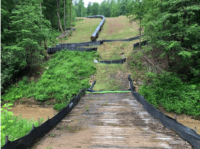An effort pushed by several state engineering licensing boards to rescind a requirement passed last year that B.S.-degreed engineers must have 30 extra credit hours before taking license exams was defeated in an Aug. 24 vote at the boards’ national convention in Philadelphia.
About 40 board representatives at the annual meeting of the National Council of Examiners for Engineering and Surveying voted against the rescission move, 19 supported it and nine abstained, according to attendees.
Opponents, particularly delegates from Nevada, California, Ohio and Alaska, believe the requirement is vague and will thwart the recruiting of future engineers. “Nevada has serious concerns about B+30,” says Patti Mamola, partner in Bowling Mamola Group, a Reno-based consulting engineer. She claims that some states that voted in favor of it “won’t ever implement it.” Mamola adds that despite the rejection, “we succeeded in continuing the dialogue.”
W. Gene Corley, a consulting engineer in Skokie, Ill., who is the new NCEES president, approves of the motion’s rejection but says that the group will now convene a task force that will ask the Accreditation Board for Engineering and Technology (ABET) to adopt a resolution that raises the number of credit hours required for an engineering degree from 120 to 138. ABET is set to take up the request at its Nov. 1-2 meeting in Baltimore. But sources caution ABET has “soundly” turned down similar requests in the past. “They don’t want to be held to a set number of hours,” says one license-board member.



Post a comment to this article
Report Abusive Comment